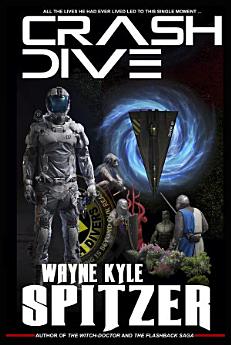Crash Dive
About this ebook
It hasn’t always been like this. Before there was Zebra Station—with its luxurious gravity centrifuge and its row of black and yellow delta divers hanging like bats from the launch jib—there was Blue One, a sparsely-manned outpost which had sent the first human souls into the maw of the blue hole, men who had come back white-haired and emaciated, debilitated—mentally and physically—mad.
The Crash Diver Program changed all that. From now on only specially-trained pilots would be sent into the Hole, pilots who had the benefit of the first men’s experiences as well as spacecraft designed specifically for the task. A lot was learned in a very short time—one of these things was that men who entered the vortex experienced a series of hallucinations, or Dive Visions, in which they briefly felt they had become someone or something else: a soldier in the Holy Roman Army, say, or a person of the opposite sex. Some even purported to have become animals or alien lifeforms—it was the latter which had apparently driven the men of Blue One clinically insane.
About the author
Wayne Kyle Spitzer (born July 15, 1966) is an American author and low-budget horror filmmaker from Spokane, Washington. He is the writer/director of the short horror film, Shadows in the Garden, as well as the author of Flashback, an SF/horror novel published in 1993. Spitzer's non-genre writing has appeared in subTerrain Magazine: Strong Words for a Polite Nation and Columbia: The Magazine of Northwest History. His recent fiction includes The Ferryman Pentalogy, consisting of Comes a Ferryman, The Tempter and the Taker, The Pierced Veil, Black Hole, White Fountain, and To the End of Ursathrax, as well as The X-Ray Rider Trilogy and a screen adaptation of Algernon Blackwood's "The Willows."








